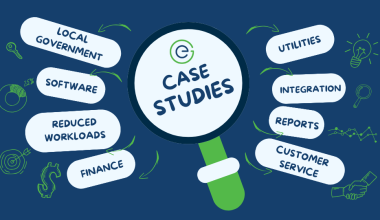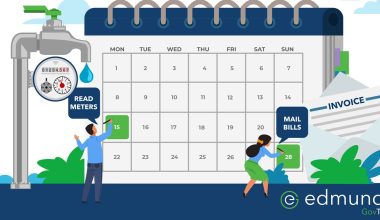Every now and then I get inquiries from utilities asking about starting a budget billing program. In a previous issue, I discussed why customer service is important, even to a utility with no competition.
Budget billing is a customer service convenience that provides a way for your customers to avoid seasonally high and low utility bills. They pay a more manageable amount that is easier to budget for, hence the name budget billing.
This issue will examine different budget billing methods and, hopefully, will help you decide if you should offer budget billing.
Budget billing methodologies
Budget billing programs generally fall into one of two categories – equal payment plans and levelized billing. Let’s start by looking at each and what differentiates them.
Equal payment plans
An equal payment plan establishes a flat amount that your customer pays for 11 months before “settling up” in the twelfth month.
The monthly budget amount is based on an established usage pattern, usually the previous year. In fact, many utilities will not allow a customer sign up for budget billing until they have at least 12 full months of usage history. A common practice is to factor in a nominal increase over the previous year’s historical average to allow for possible rate increases and changes in the customer’s usage patterns.
In the settlement month, the customer pays their actual charges plus or minus the accumulated budget billing balance. The budget billing balance is the net difference between the actual charges and the budget bill amounts for the previous 11 months. The budget billing balance can be positive or negative, depending on whether the customer’s usage has increased or decreased over the past year.
Levelized billing
As the name implies, levelized billing levels out the monthly bill amount, but it will still vary from month to month. Many levelized billing programs compute the monthly payment by averaging the previous 11 months plus the current month’s actual bill amounts.
Because levelized billing continuously averages the monthly budget amount, there is no need for an annual settlement month. Customers on levelized billing settle only when they discontinue budget billing.
Which is better – equal payment plans or levelized billing?
This is a trick question, because one really isn’t better than the other – it’s all about preferences.
From personal experience as a utility customer, my preference is an equal payment plan. For both electric and natural gas, my wife and I participate in equal payment plans and we like knowing exactly how much our utility bill will be each month.
Should you offer a budget billing program?
My recommendation is, if your utility provides an energy service (electricity or natural gas) then, yes, offering budget billing would be a convenience for your customers and I encourage you to do so.
However, if you are a water and sewer utility with no energy services, I don’t recommend offering budget billing. Even with summer irrigation, water bills typically don’t fluctuate enough from month to month to justify the overhead of administering a budget billing program.


